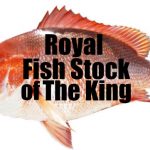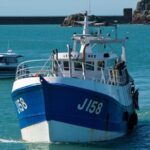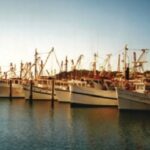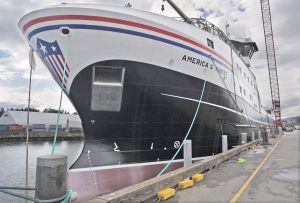Tag Archives: Portugal
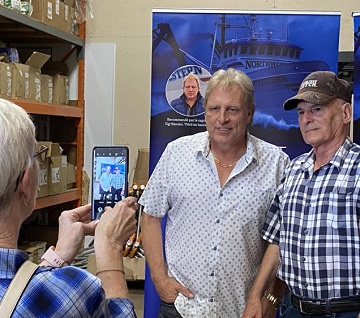
Deadliest Catch star visits Pictou to promote technology combatting ghost fishing gear
Any fisherman understands that keeping the waters clean will help ensure a viable future for the industry. “If you want a future, you have to invest in that future,” said Capt. Sig Hansen from Discovery Channel’s The Deadliest Catch. “So why not try to keep our oceans clean? That’s our responsibility.” Hansen has partnered with Resqunit (pronounced “rescue unit”), lending his star power to an endeavor they hope will assist in helping to protect the environment in which fishermen and women ply their trade. The Resqunit is a lost gear retrieval unit that can be attached to a line of traps, in case a fisher loses a buoy because of storms, accidents or by other means. It includes a user-controlled timer release that is set by using on an app on your phone. If needed, the unit will deploy after a set length of time, rise to the surface and allow fishers to retrieve their traps. >>click to read<< 14:04
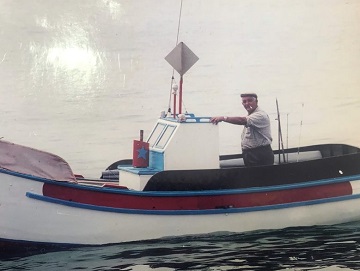
The Oldest Fisherman in Ericeira
No one gives you the ninety years made months ago, but gentlemen, already there sing, confirms, of easy laughter and critical spirit always present. He drives his car, has his coffee and toast for breakfast, his apple tree and still goes to Malhada. José Álvaro Matos Arvelo, nicknamed Tuta, was born in Ericeira, in Travessa do Caminho, in 1933. He came to this world as twelfth (his mother had 15 children), at the age of four he had twin sisters of two, and after them the youngest, Beatrice, was born. He is the son and grandson of fishermen. The nickname was given to him by an older brother, also Tuta. Photos, >click to read< 09:23
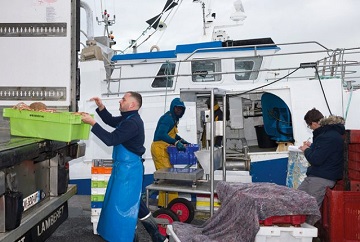
The European Union’s Plan to Ban Bottom Fishing is Causing Widespread Outrage
The plan, which seeks to ban bottom trawling in protected areas, has caused widespread demonstrations, disruption of work in ports, and the launch of a protest movement by fishermen in France called “Blocked Ports”. Although the Commission’s proposals do not represent new legislation, and will not be implemented soon in a way that satisfies some environmental protection non-governmental organizations, they have been met with strong opposition from a number of member states. There was outrage in Germany, Spain, Portugal, Italy, Ireland and Denmark, who feared the plan would endanger the entire fishing industry. The “Marine Action Plan” for sustainable fishing was announced on February 12, and it includes initiatives to phase out deep-sea trawling in protected areas. >click to read< 08:51
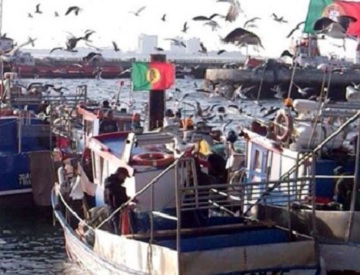
Portugal: Fishermen ‘betrayed’ over wind farms request urgent parliamentary meeting
The movement of fishing associations that has emerged from the government’s latest wind farm policy has described today how it feels utterly betrayed. “We feel that the government has betrayed the fishing sector” by setting the country on course to have what he believes will be “the largest oceanic desert in the world”, all in the name of renewable energies. Yes, wind energy will be produced – but at the cost of the livelihoods of traditional fishermen who will be banned from fishing their usual routes, even if the fish remain available. As reports have explained at stake is the proposal (currently under public consultation) to create five areas for off-shore wind farms near Viana do Castelo, Leixões, Figueira da Foz, Ericeira-Cascais and Sines. >click to read< 14:47
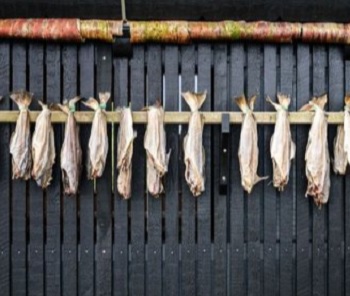
A fish that sparked a national obsession
Bacalhau (salt cod) is a deep part of Portugal’s culinary identity. But for a fish that is found only in the icy depths of the North Atlantic Ocean, far from Portugal’s shores, the country’s love affair with salt cod is a puzzling one. How exactly did it end up on Portuguese plates? The answer is wrapped up in more than 500 years of intriguing history. In the mid-1500s, during Portugal’s maritime explorations and hunt to find the coast of India, they stumbled across waters rich with cod around Canada and Greenland; a major discovery that kickstarted Portuguese cod fishing. But by the 16th Century, Portuguese fishermen were pushed out by the French and English. >click to read< 18:14
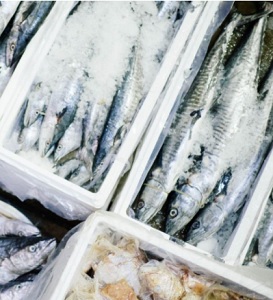
Five Aveiro fish auction officials and five shipowners charged with corruption
The Public Prosecutor’s Office has filed charges against five employees of the Aveiro fish auction and five ship owners suspected of being involved in a scheme to alter data relating to sales at electronic auctions, the Porto Regional Public Prosecutor’s Office said on 21 January. In a statement published on the Internet, the PGR-P said that by order of 4 January charges were brought against 10 defendants,,, >click to read< 18:49
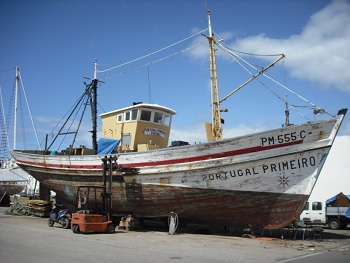
Portimão seeks skilled labour to restore historic fishing boat
A century-old fishing boat is to be restored to its former glory and displayed outside Portimão Museum. But there is one issue setting the project back, says the local council. There is a “lack of specialised labour to restore traditional vessels made out of wood”, says the council, adding that Portimão Museum is working hard to find the right people to give ‘Portugal Primeiro’ the makeover it “deserves and needs”. The restoration project is being led by Portimão Museum with the assistance of the local fishing community. >click to read< 12:24
Rarely seen ‘living fossil’ frilled shark caught off Algarve coast
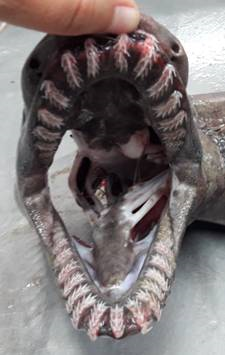 A frilled shark, a species that is often termed a ‘living fossil’ because of several ‘primitive’ features that have survived for millions of years, has been captured off the coast of Portugal’s Algarve region, the country’s meteorological and sea institute has announced. Researchers from IPMA and the Centre for Maritime Sciences recorded the catching of a shark “with unusual features” by a commercial trawler, as part of an “initiative to minimise undesirable catches in European fisheries”. click here to read the story 22:43
A frilled shark, a species that is often termed a ‘living fossil’ because of several ‘primitive’ features that have survived for millions of years, has been captured off the coast of Portugal’s Algarve region, the country’s meteorological and sea institute has announced. Researchers from IPMA and the Centre for Maritime Sciences recorded the catching of a shark “with unusual features” by a commercial trawler, as part of an “initiative to minimise undesirable catches in European fisheries”. click here to read the story 22:43
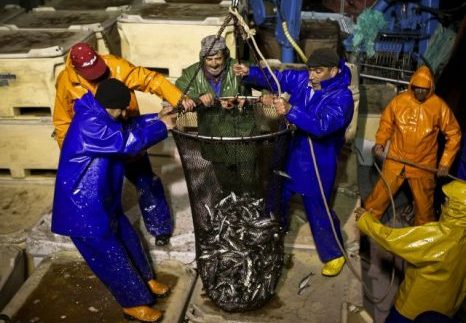
Portugal faces sardine ban
This comes after the International Council for Exploration of the Sea (ICES) advised that sardine fishing be completely suspended in Portugal and Spain in 2018 given what it termed the huge drop in stocks in the last ten years. The Portuguese government has in recent months appeared to defend the interests of the sardine fishing industry. But Minister Ana Paula Vitorino appeared to make a U-turn on Wednesday when she revealed that sardine fishing along Portugal’s northern and central coastlines would be banned in order to preserve stocks. click here to read the story 15:07

































